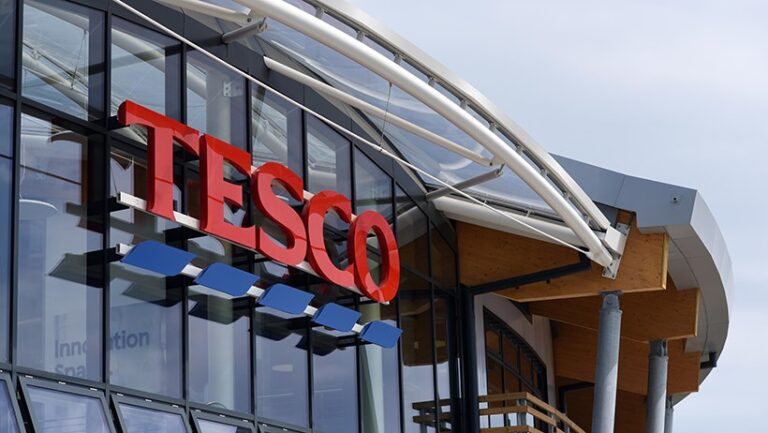Tesco says it plans to have a fully electric home delivery fleet by 2028 as part of wider carbon reduction initiatives to reach net zero carbon by 2035.
The supermarket has also set a deadline to reduce supply chain carbon emissions by 35% across food and manufacturing by 2030, and 15% for agriculture.
On the transport side of the business Tesco also revealed it had put 30 electric delivery vans on the road in Greater London this month.
Jason Tarry, Tesco UK and ROI CEO said: “In 12 months’ time, the UK will host the most critical climate change summit of the decade, known as COP26. At Tesco we want to play our part.
“That’s why we’ve brought forward our ambition to reach net zero in our UK operations by 15 years and made a series of new commitments to help us achieve that target, including reaching a new milestone today in our journey to using 100% renewable energy by 2030.”
To that end, Tesco is launching a new partnership with renewable energy investor, Low Carbon, that will see the creation of three new solar farms in Essex, Anglesey, and Oxfordshire which will generate up to 130GWh of energy per year.
The initiative is part of the retailer’s commitment to use 100% renewable electricity across the Tesco Group by 2030 and will save 30,308 tonnes of CO2 per year.
Tesco is also rolling out 2,400 charging points for customers across 600 stores, with 400 stores due to be fitted with the chargers by the end of 2020.
Tanya Steele, Chief Executive of WWF UK said: “It’s great news to see Tesco, as one of Britain’s flagship businesses, not only bringing forward the date of its longer-term commitment to net zero, but also pushing ahead with real action in the here and now to confront the climate emergency.”
Roy Bedlow, Chief Executive and Founder of Low Carbon, said: “Renewable energy generation at scale is central to Low Carbon’s business model and is a critical element in the fight against climate change. Partnering with forward thinking companies like Tesco will help speed the adoption of renewable energy at scale on the path to achieving a truly low-carbon economy.”







